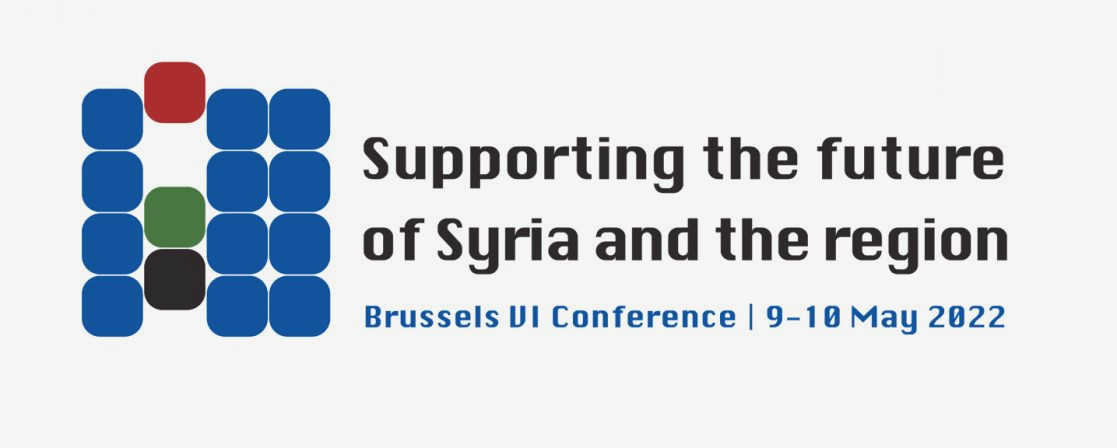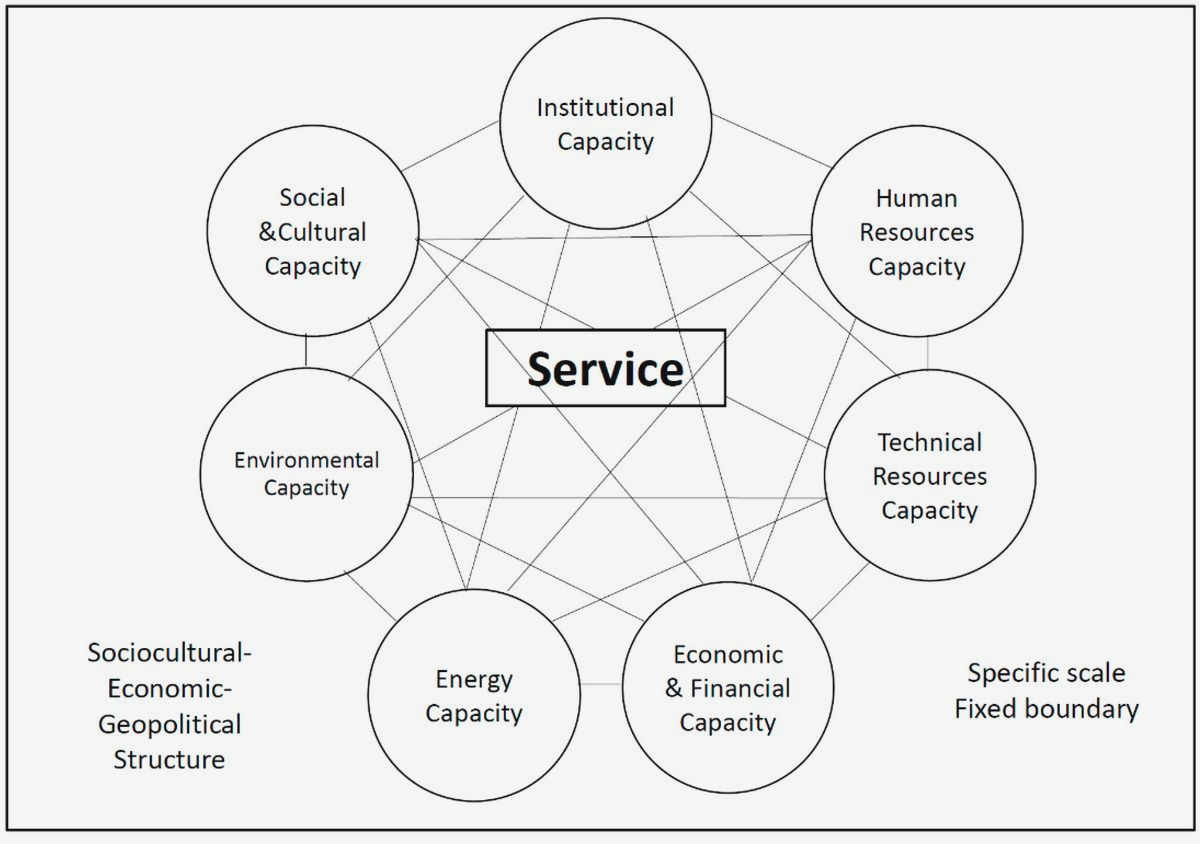In today’s interconnected world, the role of civil society cannot be underestimated. Civil society organizations play a critical role in advocating for the rights and interests of individuals and communities, and in holding governments accountable. However, many civil society organizations face challenges in effectively carrying out their mission due to limited resources, skills, and networks.
Effective capacity building is essential for civil society organizations to amplify their voices and make a lasting impact. Capacity building refers to the process of strengthening an organization’s ability to achieve its goals and objectives. It involves developing and enhancing skills, knowledge, and resources to increase effectiveness, sustainability, and impact.
Capacity building initiatives can take various forms, including training programs, mentorship, networking opportunities, and access to resources. These initiatives aim to empower civil society organizations by equipping them with the tools and knowledge needed to address challenges and achieve their goals more effectively.
By investing in capacity building, governments, donors, and other stakeholders can help to build a strong and vibrant civil society sector. This, in turn, leads to a more inclusive and democratic society, as well as improved social, economic, and environmental outcomes. It enables civil society organizations to advocate for their causes, engage with policymakers, and bring about positive change in their communities.
Amplify Voices: Boosting Civil Society
Empowering Civil Society Organizations
Civil society organizations (CSOs) play a vital role in promoting democracy, human rights, and social progress. In order to ensure their effectiveness, it is crucial to provide them with the necessary support and capacity building opportunities. Through targeted training programs, CSOs can acquire the skills and knowledge needed to amplify their voices and drive meaningful change in their communities.
Enhancing Advocacy and Civic Engagement
Amplifying the voices of civil society requires an active and engaged citizenry. By enhancing advocacy and civic engagement, we can empower individuals to take an active role in shaping their societies. This can be achieved through workshops, public awareness campaigns, and grassroots initiatives that encourage people to participate in decision-making processes and hold their governments accountable.
Strengthening Networks and Collaboration
A strong civil society is built on collaboration and networking. By fostering connections between different CSOs, we can amplify their collective impact and create a stronger platform for advocacy. This can be facilitated through the establishment of regional and international networks, as well as the sharing of best practices and resources. By working together, civil society organizations can leverage their collective strengths and maximize their influence.
Building Sustainable Capacity
Capacity building is not a one-time event, but an ongoing process. It is essential to provide CSOs with the resources and support they need to sustain their work in the long term. This can include financial assistance, mentorship programs, and access to technology and infrastructure. By investing in the capacity of civil society organizations, we can ensure their sustained impact and contribution to social development.
Capacity Building: Driving Progress
Capacity building plays a crucial role in driving progress within civil society. It involves a range of activities aimed at strengthening the knowledge and skills of individuals, organizations, and communities in order to enhance their ability to address societal challenges effectively.
Enhancing expertise and knowledge: Capacity building initiatives provide individuals with the necessary tools and resources to expand their expertise and knowledge in specific areas. This can include training programs, workshops, and seminars that focus on topics such as advocacy, leadership, project management, and communication skills.
Fostering collaboration: Capacity building also encourages collaboration and networking among civil society organizations. By creating opportunities for dialogue and partnership, capacity building initiatives enable organizations to share best practices, exchange ideas, and work together towards common goals.
Improving organizational effectiveness: Capacity building helps civil society organizations improve their internal structures and processes, making them more efficient and effective in delivering their services and achieving their objectives. This can involve strengthening governance mechanisms, developing strategic plans, implementing monitoring and evaluation systems, and enhancing financial management practices.
Empowering communities: Capacity building is not limited to individuals and organizations; it extends to communities as well. By empowering communities with the necessary knowledge and skills, capacity building initiatives enable them to actively participate in decision-making processes, voice their concerns, and contribute to social change.
Driving sustainable development: Capacity building is a key driver of sustainable development. By enhancing the capacity of individuals and organizations, civil society can better address social, economic, and environmental challenges. This can contribute to the achievement of the United Nations’ Sustainable Development Goals and the overall well-being of communities.
In conclusion, capacity building plays a vital role in driving progress within civil society. It empowers individuals, organizations, and communities, enhances their knowledge and skills, fosters collaboration, improves organizational effectiveness, empowers communities, and drives sustainable development. By investing in capacity building initiatives, we can create a stronger and more resilient civil society that is better equipped to tackle the challenges of our time.
Empowering Grassroots Organizations
Grassroots organizations play a crucial role in driving social change and addressing local issues. These organizations are often formed by individuals who are directly affected by these issues and have a deep understanding of the needs of their own communities.
Effective capacity building is essential for empowering grassroots organizations to create sustainable impact. By providing them with the necessary skills, knowledge, and resources, these organizations can better advocate for change, mobilize their communities, and implement effective programs and initiatives.
Capacity Building Programs
One way to empower grassroots organizations is through capacity building programs. These programs can offer training in areas such as project management, fundraising, advocacy, and organizational development. By equipping these organizations with the tools they need to operate effectively, they can maximize their impact and sustain their efforts.
Capacity building programs should also focus on fostering partnerships and collaboration among grassroots organizations. By facilitating networking opportunities, organizations can learn from one another, share best practices, and leverage their collective strength to tackle common challenges.
Resource Mobilization
Empowering grassroots organizations also involves ensuring they have access to the necessary financial and non-financial resources. This can be done through facilitating connections with potential donors, providing guidance on fundraising strategies, and helping organizations develop effective grant proposals.
Additionally, capacity building efforts should address the importance of diversifying funding sources. By encouraging organizations to explore alternative funding models, such as social enterprises or partnerships with businesses, they can become more financially sustainable and less reliant on external funding.
Monitoring and Evaluation
Another key aspect of empowering grassroots organizations is establishing robust monitoring and evaluation systems. By implementing frameworks to measure their impact, organizations can demonstrate the effectiveness of their work, attract further funding, and refine their strategies for maximum effectiveness.
Capacity building programs should provide guidance on developing monitoring and evaluation plans, collecting relevant data, and analyzing the results. This will enable grassroots organizations to continuously learn and improve, ensuring their efforts are making a meaningful difference in the lives of the communities they serve.
Conclusion
Empowering grassroots organizations is essential for enhancing civil society and driving social change. Through capacity building programs, resource mobilization, and establishing effective monitoring and evaluation systems, these organizations can amplify their voices, advocate for their communities, and create lasting impact.
Unlocking Potentials: Skills Development
Skills development plays a crucial role in unlocking the potentials of individuals and fostering their personal and professional growth. By offering opportunities for learning and acquiring new competencies, skills development initiatives empower individuals to explore their talents, improve their abilities, and expand their career prospects.

Targeted Programs and Workshops
Amplify Voices recognizes the importance of tailored programs and workshops that address the specific needs and aspirations of civil society organizations. Through these initiatives, individuals are exposed to a wide range of skill sets, including project management, leadership, advocacy, and communication.
By participating in targeted programs and workshops, individuals not only gain knowledge but also develop practical skills that enable them to effectively address the challenges and opportunities in their respective fields. They learn how to plan and implement projects, navigate complex decision-making processes, and effectively communicate their ideas to different stakeholders.
Mentorship and Coaching
Amplify Voices understands the importance of mentorship and coaching in skills development. Through one-on-one mentorship and coaching sessions, individuals receive personalized guidance and support to enhance their skills, overcome obstacles, and tap into their full potential.
Mentors and coaches provide valuable insights, share their experiences, and offer advice on career development and problem-solving. This guidance helps individuals to identify and pursue opportunities for growth, hone their strengths, and acquire the skills necessary to adapt to changing circumstances and emerging trends.
Collaborative Learning and Networking
Skills development is not limited to individual efforts; it also thrives in collaborative learning environments and networks. Amplify Voices promotes the creation of communities of practice, where individuals can come together to exchange knowledge, share resources, and collaborate on common goals.
By participating in collaborative learning activities, individuals can tap into the collective wisdom and experiences of their peers. They can learn from different perspectives, explore innovative approaches, and gain inspiration from successful initiatives. Moreover, networking opportunities enable individuals to establish valuable connections, build partnerships, and leverage the collective power of civil society for greater impact.
In conclusion, skills development is a key component of unlocking potentials and fostering the growth of individuals. By providing targeted programs, mentorship, and collaborative learning opportunities, Amplify Voices aims to empower civil society organizations and their members to make a positive and lasting change in their communities.
Cultivating Innovation for Change
In order to bring about meaningful and sustainable change, it is crucial to cultivate innovation within civil society. Innovation allows for the development of new ideas, approaches, and solutions to address the complex challenges and opportunities that societies face. Through fostering a culture of innovation, civil society organizations can effectively adapt and respond to ever-evolving social, economic, and political landscapes.
Adopting a mindset of innovation involves embracing experimentation, risk-taking, and continuous learning. By encouraging creative thinking and providing a supportive environment, civil society organizations can empower their members to challenge assumptions, explore new possibilities, and generate innovative solutions. This mindset shift can foster a culture of innovation where new ideas are valued, tested, and refined.
Building collaborative networks is another important aspect of cultivating innovation. By actively engaging with diverse actors and fostering partnerships, civil society organizations can tap into a wide range of perspectives, expertise, and resources. Collaboration allows for the cross-pollination of ideas, the sharing of knowledge and best practices, and the co-creation of innovative solutions. Through these networks, civil society organizations can amplify their impact and foster collective innovation.
Investing in capacity building and skill development is essential for fostering innovation within civil society. By equipping individuals and organizations with the necessary tools, knowledge, and skills, they can effectively navigate the innovation process. This includes building skills in design thinking, data analysis, project management, and strategic planning. By investing in capacity building, civil society organizations can empower their members to become innovators, change agents, and leaders in their fields.
Recognizing and celebrating innovation is also important for cultivating a culture of innovation within civil society. By highlighting and acknowledging innovative initiatives, organizations can inspire others and create a positive feedback loop. This can encourage more individuals and organizations to take risks, think creatively, and embrace innovation as a means of creating positive social change.
In conclusion, cultivating innovation within civil society is crucial for driving meaningful and sustainable change. By adopting a mindset of innovation, building collaborative networks, investing in capacity building, and recognizing and celebrating innovation, civil society organizations can effectively navigate the challenges and seize the opportunities present in today’s complex world.
Building Collaborative Networks
In order to effectively amplify voices and boost civil society, it is crucial to build collaborative networks among different organizations and actors. Collaborative networks provide a platform for sharing knowledge, resources, and expertise, leading to more impactful outcomes.
One way to build collaborative networks is through partnerships and alliances. By partnering with other organizations that share similar goals and values, civil society organizations can leverage each other’s strengths and expand their reach. These partnerships can take the form of joint projects, co-funding initiatives, or collaborative advocacy efforts.

Another way to build collaborative networks is through the establishment of platforms for dialogue and coordination. These platforms can bring together various stakeholders, including civil society organizations, government entities, and private sector actors, to discuss common challenges, share best practices, and develop joint strategies. They can also facilitate the exchange of information and foster greater cooperation among different actors.
Collaborative networks can also be built through capacity building initiatives. By providing training and support to civil society organizations, they can enhance their ability to collaborate effectively with other actors. This can include developing skills in networking, communication, and negotiation, as well as providing tools and resources for building and maintaining collaborative relationships.
Benefits of Building Collaborative Networks:
- Increased Impact: Through collaborative networks, civil society organizations can amplify their impact by leveraging the strengths and resources of different actors.
- Knowledge Sharing: These networks provide a platform for exchanging knowledge and best practices, leading to improved learning and innovation.
- Enhanced Advocacy: By working together, organizations can have a stronger voice in advocating for policy changes and social justice issues.
- Resource Optimization: Collaborative networks enable resource sharing, reducing duplication of efforts and maximizing the efficient use of resources.
Overall, building collaborative networks is essential for enhancing the capacity and effectiveness of civil society organizations. By fostering collaboration and coordination among different actors, these networks can lead to greater impact, innovation, and sustainability.
Sustainable Growth: Financial Strengthening
Financial strengthening is a crucial aspect of sustainable growth for civil society organizations. It involves creating effective financial management systems and strategies to ensure long-term stability and viability.
Effective budgeting: Developing a comprehensive and realistic budget is essential for financial strengthening. Organizations need to accurately estimate their income and expenses, allocate resources efficiently, and monitor their financial performance regularly.
Diversifying income streams: Relying on a single source of funding puts organizations at risk. To achieve financial sustainability, organizations should explore diverse income streams, such as grants, donations, partnerships, and earned income. This reduces dependency on a single funding source and increases financial stability.
Building partnerships: Collaborating with other organizations and stakeholders can contribute to financial strengthening. Partnerships can provide access to additional resources, funding opportunities, and shared knowledge and expertise. By working together, organizations can enhance their financial capacity and achieve sustainability.
Investing in fundraising: Developing effective fundraising strategies is crucial for financial strengthening. This involves investing in building relationships with potential donors, improving communication and networking skills, and maximizing fundraising opportunities. It is important to continuously evaluate and refine fundraising strategies to ensure their effectiveness.
Monitoring and evaluation: Regular monitoring and evaluation of financial performance are essential for identifying areas of improvement and ensuring financial strengthening. Organizations should establish clear financial indicators and regularly track their financial progress. This enables them to make informed decisions, address financial challenges, and seize opportunities for growth.
Overall, financial strengthening is vital for the sustainable growth of civil society organizations. By implementing effective financial management systems, diversifying income streams, building partnerships, investing in fundraising, and monitoring and evaluating financial performance, organizations can enhance their financial capacity and ensure long-term viability.
Advocate for Inclusive Policies
Advocating for inclusive policies is crucial for civil society organizations to ensure that the needs and rights of marginalized groups are recognized and addressed. By actively engaging in policy-making processes, civil society organizations can push for the adoption of policies that promote inclusivity and equal opportunities for all.
Promoting representation: Civil society organizations can advocate for inclusive policies by pushing for greater representation of marginalized groups in decision-making bodies. By demanding diverse voices and perspectives, policies can better reflect the needs and concerns of all members of society.
Addressing systemic barriers: Inclusive policies should also aim to address systemic barriers that prevent the full participation of marginalized groups. Civil society organizations can advocate for the removal of discriminatory practices and policies that perpetuate inequality, such as unequal access to education, healthcare, or employment.
Building capacity: In addition to advocating for policy changes, civil society organizations can also play a crucial role in building the capacity of marginalized groups to actively participate in policy-making processes. By providing training, resources, and support, these organizations can empower individuals to have their voices heard and contribute to inclusive policy development.
Collaborating with policymakers: To effectively advocate for inclusive policies, civil society organizations should seek collaboration with policymakers. By establishing partnerships and engaging in constructive dialogue, organizations can influence policy decisions and ensure the implementation of inclusive policies that promote social justice and equality.
Evaluating impact: It is also important for civil society organizations to assess the impact of policies on marginalized groups. Through research and data collection, organizations can monitor the effectiveness of policies and advocate for necessary adjustments or improvements to ensure that they truly benefit all members of society.
In conclusion, advocating for inclusive policies is crucial for civil society organizations to promote social justice and equality. By actively engaging in policy-making processes, promoting representation, addressing systemic barriers, building capacity, collaborating with policymakers, and evaluating impact, these organizations can contribute to the development and implementation of policies that ensure the inclusion and empowerment of marginalized groups.
Adapting to Digital Age: Technology Enablement
The rapid advancement of technology in the digital age has revolutionized the way civil society operates. Technology enablement has become crucial for enhancing the capacity of organizations and empowering voices in the digital space.
Enhanced Communication and Collaboration
Technology has enabled civil society organizations to connect with stakeholders and communities like never before. Through email, instant messaging, and video conferencing, organizations can easily communicate and collaborate with partners, volunteers, and beneficiaries across the globe. This level of connectivity helps to streamline operations, foster teamwork, and share knowledge and resources effectively.

Data Collection and Analysis
Technology has made data collection and analysis more efficient and accurate. With the help of mobile applications and online platforms, civil society organizations can collect data in real-time, eliminating the need for paper-based surveys and manual data entry. Additionally, advanced data analytics tools enable organizations to make sense of the collected data, gain valuable insights, and make informed decisions to address issues and challenges.
Digital Advocacy and Engagement
Technology has provided civil society organizations with powerful tools and platforms for digital advocacy and engagement. Through social media, websites, and online campaigns, organizations can raise awareness, mobilize support, and influence public opinion on various social issues. The digital age has democratized the ability to amplify voices and reach a wider audience, allowing organizations to advocate for their causes on a global scale.
Remote Learning and Capacity Building
In the digital age, technology has transformed the way capacity building and learning take place in civil society organizations. Online webinars, e-learning platforms, and virtual training sessions have made it possible for individuals to access educational resources and participate in capacity-building programs remotely. This has not only expanded opportunities for learning but also increased inclusivity by breaking down geographical barriers and reducing the need for travel.
In conclusion, technology enablement has become an essential part of civil society organizations’ strategies to adapt to the digital age. It facilitates enhanced communication and collaboration, improves data collection and analysis, empowers digital advocacy and engagement, and provides opportunities for remote learning and capacity building. Embracing technology is crucial for organizations to effectively amplify voices and boost their impact in the digital space.
Transparent Governance: Effective Oversight
Transparent governance is crucial for ensuring accountability and promoting trust in the functioning of institutions. Effective oversight mechanisms play a central role in achieving transparency in governance. Oversight involves monitoring and reviewing the activities of government entities, ensuring compliance with laws and regulations, and addressing any misconduct or inefficiencies.
One way to enhance oversight is through the establishment of independent oversight bodies. These bodies should be granted sufficient powers and resources to carry out their duties effectively. They should have the authority to access relevant information, conduct investigations, and make recommendations for improving governance practices.
Transparency is also promoted through the publication of government reports and data. Governments should proactively disclose information relating to their activities, budgets, and decision-making processes. This includes making documents, such as annual reports and financial statements, easily accessible to the public. Additionally, governments should adopt open data policies, making non-sensitive information available in machine-readable formats for analysis and scrutiny.

Capacity building efforts can also contribute to transparent governance and effective oversight. Civil society organizations and other stakeholders should be equipped with the necessary skills and knowledge to monitor government activities and hold them accountable. This includes training on data analysis, budget monitoring, and advocacy techniques. By enhancing the capacity of civil society, governments can benefit from increased scrutiny and feedback, leading to better governance outcomes.
Overall, transparent governance and effective oversight are essential for promoting accountability and strengthening the relationship between government and citizens. Through the establishment of independent oversight bodies, the publication of government reports, and capacity building efforts, governments can enhance transparency and work towards more inclusive and accountable governance.
Measuring Impact: Evaluation and Reporting
Evaluation and reporting are crucial aspects of measuring the impact of capacity building initiatives in civil society. By evaluating the effectiveness and outcomes of these programs, organizations can gain valuable insights into the success of their efforts and make data-driven decisions for future improvement.
Evaluation: To measure the impact of capacity building programs, it is important to conduct thorough evaluations. This involves collecting and analyzing data on various metrics, such as the knowledge gained by participants, changes in behavior or attitudes, and the overall impact on the organization or community. Evaluations can be done through surveys, interviews, focus groups, or other assessment methods.
Reporting: Once the evaluation is complete, it is essential to report the findings in a clear and concise manner. This allows stakeholders, including donors and beneficiaries, to understand the impact of the capacity building initiative. Reports should include key metrics, qualitative and quantitative data, and a summary of the findings. Visual representations, such as charts or graphs, can also help to convey the information effectively.
Evaluation and reporting should be an ongoing process throughout the duration of a capacity building program. Regular monitoring and evaluation allow organizations to identify strengths and weaknesses, make necessary adjustments, and ensure that the program remains on track to achieve its intended goals. By effectively measuring the impact of capacity building initiatives, civil society organizations can strengthen their work and contribute to positive social change.





